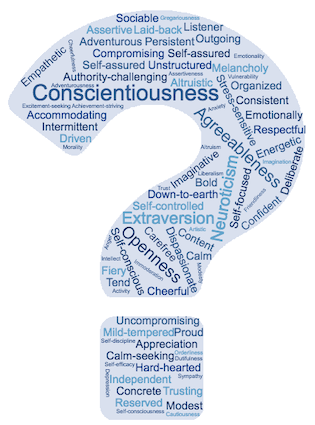Understanding who you are is one of the most powerful steps toward personal growth, confidence, and healthy decision-making. Learning how to know your personality helps you recognize your strengths, weaknesses, emotional patterns, and how you respond to different situations. Many people go through life without truly understanding themselves, which leads to confusion, stress, and lack of direction. This guide explores simple yet effective ways to uncover your real personality and understand yourself more deeply.
Why Does Knowing Your Personality Matter?
Before learning how to know your personality, it’s important to understand why it matters. When you know who you are, your choices become clearer. You understand what motivates you, what drains your energy, and what environments help you thrive.
Benefits of Understanding Your Personality
- Improves decision-making
- Builds stronger relationships
- Helps in career choice and growth
- Enhances emotional control
- Increases confidence and self-acceptance
Understanding yourself gives you direction in life. It becomes easier to set goals and stay consistent because you know why you are doing something.
How to Know Your Personality Through Self-Observation
The first step in learning how to know your personality is observing your daily reactions. Self-observation means watching your emotions, thoughts, and behaviors without judging yourself.
Start With These Reflection Questions
- What situations make you feel energetic or drained?
- Do you enjoy being around people or being alone?
- How do you react under stress?
- What makes you feel inspired or happy?
Keeping a journal can help. Writing emotionally honest thoughts for just 5–10 minutes a day can reveal patterns you didn’t notice before.
How to Know Your Personality Through Behavior Patterns
Your personality is reflected in your habits and choices. Look at what you naturally do, not what others expect from you.
Examples of Behavioral Indicators
| Behavior | What It Suggests |
|---|---|
| You often organize or plan | You may have a structured, practical personality |
| You enjoy creative hobbies | You may be imaginative and expressive |
| You avoid conflict | You may be peace-loving or sensitive |
| You take charge in groups | You may have leadership tendencies |
Patterns don’t lie — they show who you really are.
Using Personality Frameworks to Know Yourself
There are well-known personality systems designed to help people understand themselves. These frameworks are not perfect, but they provide helpful insight.
Popular Personality Tools
- MBTI (Myers-Briggs Type Indicator)
Describes how you make decisions and process information (e.g., INFJ, ENFP, ISTP). - Big Five Personality Traits
Measures openness, conscientiousness, extraversion, agreeableness, and emotional stability. - Enneagram
Helps identify your core motivations and fears (Type 1 – Type 9). - DISC Assessment
Shows communication styles and work personality.
Taking one or more of these tests can help you begin understanding your personality at a deeper level.
How to Know Your Personality by Understanding Your Values
Your values are beliefs that guide your actions. They influence your decisions more than you realize. Understanding your values is a major part of how to know your personality.
Ask Yourself: What Do You Value Most?
- Freedom or stability?
- Love or success?
- Creativity or logic?
- Adventure or comfort?
The things that matter most to you shape who you are.
Observing How You Connect with People
The way you interact with others can tell you a lot about your personality.
Ask Yourself:
- Do you feel energized after socializing or exhausted?
- Do you trust people easily or take time to open up?
- Do you prefer deep conversations or light, casual talk?
Your social comfort level is a key identity marker.
How Emotions Reveal Personality
Your emotional responses are not random. They show how your mind is wired.
- If you get frustrated easily → You may be passionate or sensitive.
- If you stay calm in conflicts → You may be patient or logical.
- If you overthink → You may be detail-oriented or cautious.
Instead of judging your feelings, try to understand what they say about you.
Conclusion
Learning how to know your personality is a journey, not a one-time discovery. You grow and change over time, and your personality reveals itself more clearly as you pay attention to your behavior, values, emotions, and habits. By reflecting regularly, exploring personality frameworks, and observing your daily actions, you can develop a strong self-understanding that guides you toward a purposeful and confident life.
The more you learn about yourself, the more clearly you will know how to build the life that feels right for you.

